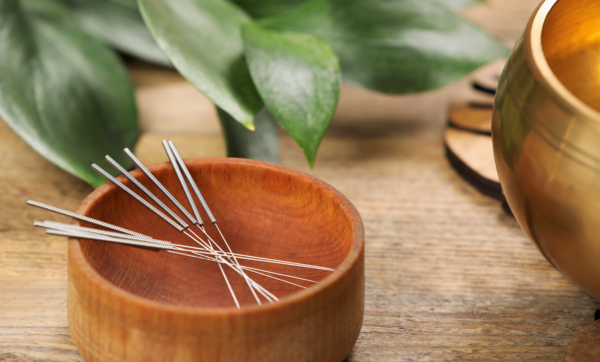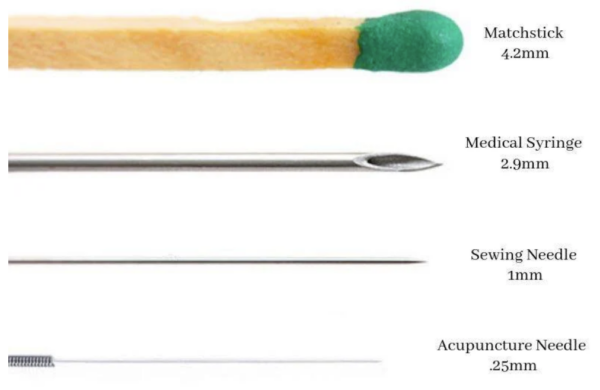
1. What is acupuncture?
Acupuncture is a healing modality within the framework of Ancient Chinese Medicine, an ancient indigenous holistic medicine that has been utilized in China for over 2,000 years. The earliest mention of acupuncture is in a classical text called the Huangdi Neijing, Yellow Emperor’s Classic of Internal Medicine.
From an Ancient Chinese Medical perspective, the acupuncture meridians are like rivers of communication that flow between different organ networks. Acupuncture helps to open and free these lines of communication. This ultimately supports cohesive vitality and overall ease in the body, while simultaneously helping the immune system defend itself against external pathogens rather than get bogged down by them.
From a Biomedical perspective, acupuncture stimulates the vagus nerve, opens neural pathways, regulates hormones, improves the circulation of blood flow and activates the network between the nervous system and the endocrine system to return the body to an optimal state of function.
2. Does acupuncture hurt?
For the most part, acupuncture is not painful at all. When the needle goes into your body, you may experience a small prick that lasts less than half of a second and is nowhere near the sharpness of receiving a shot. After the needle is inserted, you may feel what is referred to as a qi sensation – a cathartic dull ache, a traveling gesture from one area of the body to another, expansion, or many other internal sensations.
3. How big is an acupuncture needle?

4. Can acupuncture treat more than pain?
Yes! As acupuncture belongs to the entire medical system of Ancient Chinese Medicine, technically there is no limit on what it can treat. What can be treated depends on the skills and specializations of your practitioner. Pain relief is simply the most recognized outcome, likely because it is a common sensation that many notice post-treatment. We can’t see what is going on in our body, but we can feel an immediate lessening of pain.
5. How many acupuncture sessions do I need?
This depends on several factors including what you are seeking support for. Your acupuncturist will have a conversation with you about your treatment goals, and the two of you will discuss the frequency and number of sessions expected to reach those goals. Your practitioner can recommend additional healing methods from Ancient Chinese Medicine that you can integrate into your life between each session.
6. Will acupuncture continue working after my treatment is finished?
Yes. Whatever was initiated during your acupuncture session will continue integrating in your body after the treatment is finished.
7. Is there any scientific evidence behind acupuncture?
So far there is ample evidence for acupuncture results in cases of allergic rhinitis, anxiety, flipping a breech baby, cancer pain, menopause, osteoarthritis, plantar fasciitis, pediatrics, and more. These are simply the conditions that have been studied extensively. Science takes time. Acupuncture has only been in the United States since the 1970’s, and has only recently gained popularity in the 2000’s. A source for up-to-date evidence-based acupuncture is http://evidencebasedacupuncture.org.
8. But isn’t acupuncture just placebo?
If acupuncture was just placebo, it probably wouldn’t have survived as a legitimate method of treatment in China for thousands of years through various diseases and epidemics. Certain modern research trials have demonstrated differences between acupuncture and placebo acupuncture groups. For example, acupuncture analgesia and placebo analgesia groups have shown different patterns of activation in the brain (source).
9. I want help, but I still don’t know if I believe in acupuncture.
You don’t have to believe in acupuncture to receive its benefits. We’re aware that acupuncture is a new and unusual therapy to some, and it might even be out of your personal comfort zone. Skepticism is normal and welcome – acupuncturists aren’t here to force any beliefs onto you, we just want to help you.
Was something left unanswered?
Do you have more questions about acupuncture that haven’t been answered above? Book a discovery consultation call or contact Jessica directly to have your questions answered.

Leave a Reply